Publications
Articles, publications, books, tools and multimedia features from the U.S. Institute of Peace provide the latest news, analysis, research findings, practitioner guides and reports, all related to the conflict zones and issues that are at the center of the Institute’s work to prevent and reduce violent conflict.
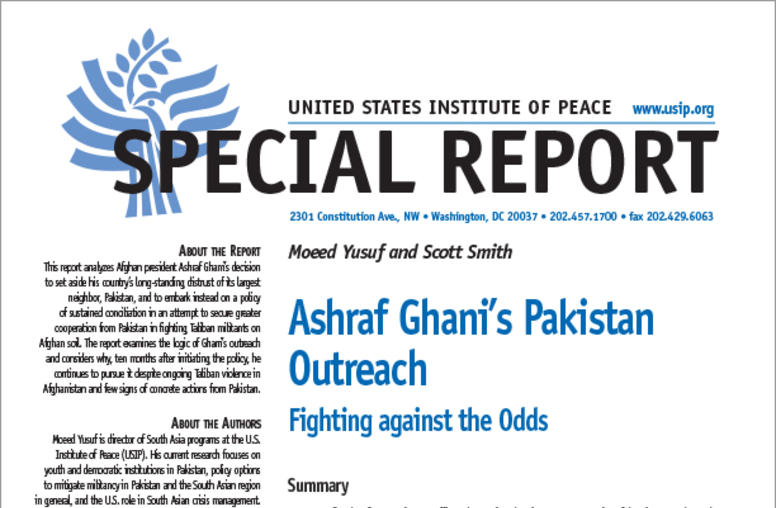
Ashraf Ghani’s Pakistan Outreach
Shortly after entering office at the end of 2014, Afghan President Ashraf Ghani embarked on a bold but controversial policy of sustained conciliation toward Pakistan, with the goal of securing greater cooperation in securing a comprehensive peace with the Afghan Taliban and integrating Afghanistan into the regional economies. Pakistan's tepid response to date, however, has left Ghani politically vulnerable, with his opponents attacking his outreach effort. Time is of the essence. Without mea...
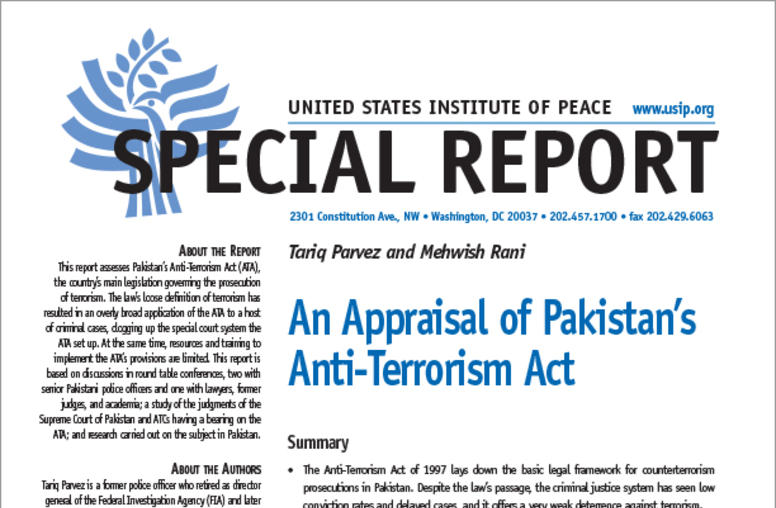
An Appraisal of Pakistan’s Anti-Terrorism Act
Pakistan passed the Anti-Terrorism Act in 1997 in response to the rising threat of terrorism within its borders. The law was designed to help law enforcement combat terrorism. Instead, conceptual difficulties within the law and procedural problems in implementing it have led to an alarmingly high number of acquittals. This report examines the weaknesses in the Anti-Terrorism Act and suggests ways to improve the law and its application to better fight terrorism in Pakistan.
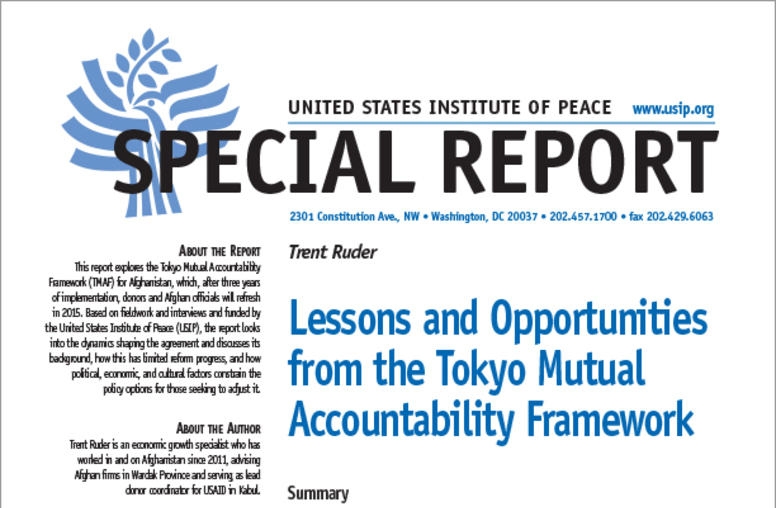
Building a Sustainable Afghanistan
Drafted in 2012, the Tokyo Mutual Accountability Framework (TMAF) provides guidelines for Afghan reform and ongoing donor support and has proved useful, but it is hobbled by political, social, financial, and bureaucratic factors. The Ghani-Abdullah unity government, inaugurated in the autumn of 2014, is looking to refresh the agreement to fit an evolving political and economic context. Policy trade-offs are inevitable, however. They raise a critical question: Is the document intended to organ...
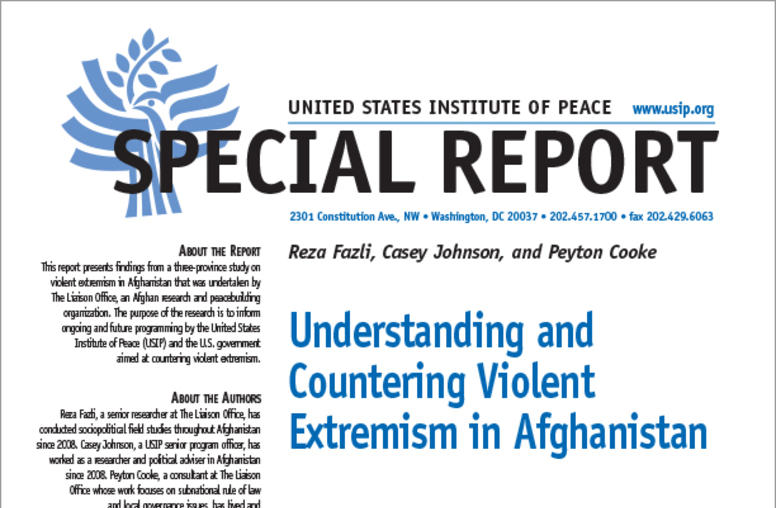
Understanding and Countering Violent Extremism in Afghanistan
Youth recruitment into extremist groups in Afghanistan continues to be a major source of group building. In field studies and interviews conducted in three provinces to elicit views on extremist groups, both violent and nonviolent, and factors thought to induce youth to join such groups, violent extremist groups emerged as unpopular and mistrusted, being perceived as un-Islamic and controlled by foreign powers. Nonetheless, the activities and ideologies of such groups have not been effectivel...
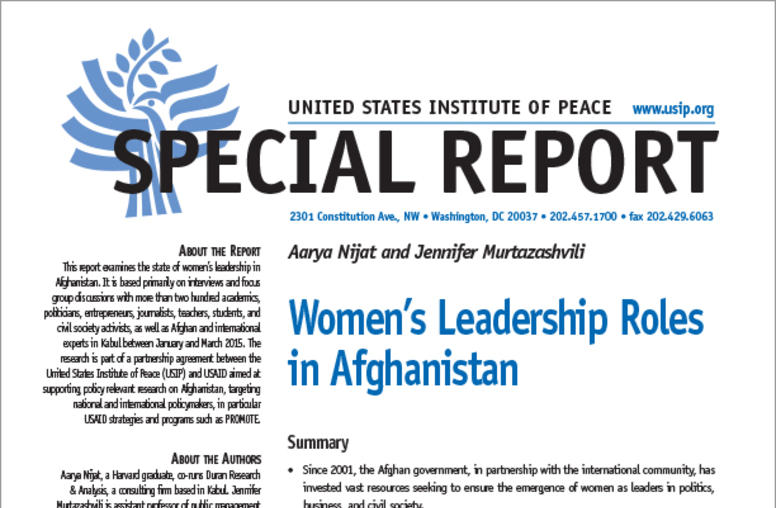
Women’s Leadership Roles in Afghanistan
In the days after September 11, the international community’s desire to “rescue” Afghan women from their social, political, and economic fate was key to mobilizing global support to topple the Taliban regime. Since then, the Afghan government and the international community have invested vast resources seeking to improve the status of women in the country, primarily through programs to support women leaders in politics, business, and civil society. Drawn on interviews and focus group discussi...
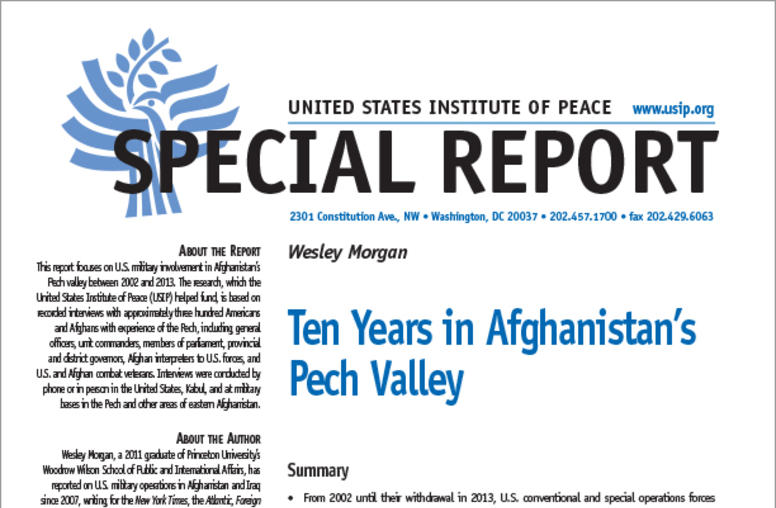
Ten Years in Afghanistan’s Pech Valley
The al-Qaeda presence in the Pech valley is greater now than when U.S. forces arrived in 2002, and counterterrorism efforts in the region continue. This report looks at U.S. military involvement in the Pech valley and the lessons it offers both the Afghan National Security Forces and the U.S. military. It is derived from interviews with some three hundred Americans and Afghans, including general officers, unit commanders, members of parliament, district and provincial governors, Afghan interp...
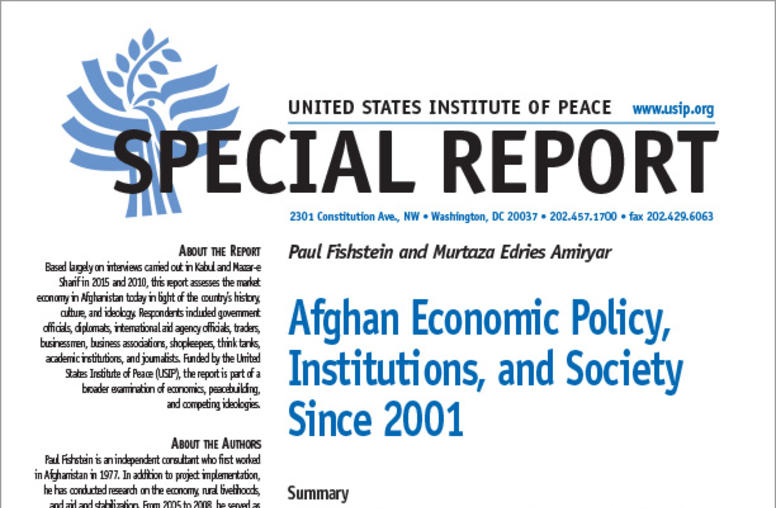
Afghan Economic Policy, Institutions and Society Since 2001
The general expectation among Afghans after the fall of the Taliban was that the state, equipped with financial resources and technical assistance from the international community, would once again take the lead in the economic sphere. Instead, Kabul adopted a market economy. The move remains controversial in some quarters. This report, derived from interviews conducted in 2015 and 2010, takes stock of the competing ideologies in Afghanistan today with respect to the economy.
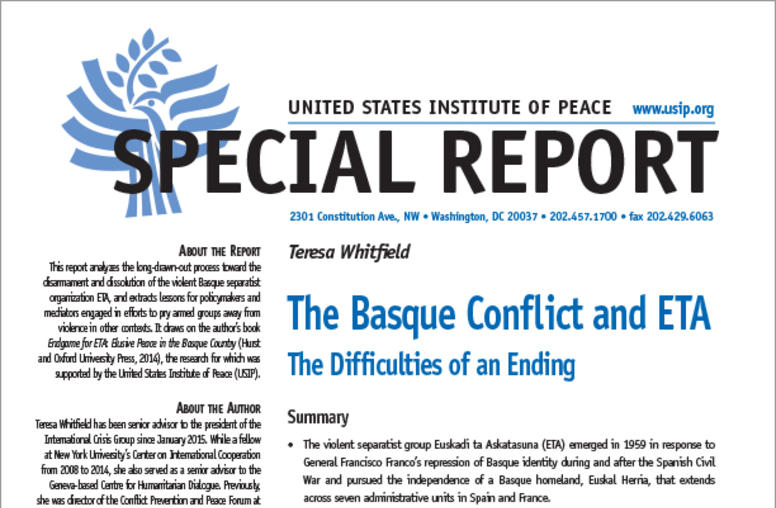
The Basque Conflict and ETA: The Difficulties of an Ending
Violence at the hands of the Basque separatist organization ETA was for many years an anomalous feature of Spain’s transition to democracy. This report, which draws on the author’s book Endgame for ETA: Elusive Peace in the Basque Country (Hurst and Oxford University Press, 2014), explains why this was the case, examines both the factors that contributed to ETA’s October 2011 announcement of an end to violence and the obstacles encountered in moving forward from that announcement to disarmame...
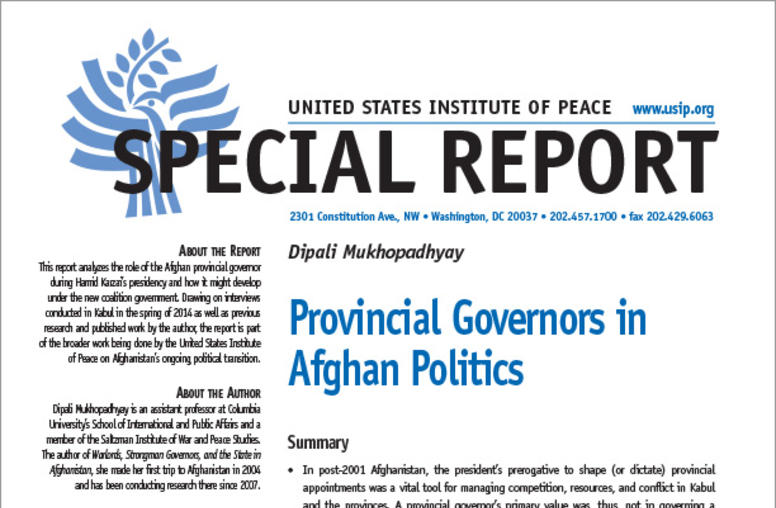
Provincial Governors in Afghan Politics
The presidency of Hamid Karzai was a significant transition for Afghanistan. This report describes subnational politics—specifically, provincial governorships—over the period in general terms, exploring the gaps between assumptions that drove belief in the possibility of a radically new and improved brand of governance and the realities on the ground. The findings aim to inform a more realistic outlook not only on Afghan politics past and future, but also on subsequent foreign-led interventio...

Resources over Reform in Afghanistan
The election of Ashraf Ghani as president in 2014 gave Afghans and the international community hope that political reform was on its way. However, thus far, little has been achieved to improve governance and reduce corruption, especially at the local level. Based on interviews conducted in four communities in Afghanistan, this report reveals that economic and security changes are having the greatest impact on local politics, keeping the powerful elite in positions of influence as they compete...